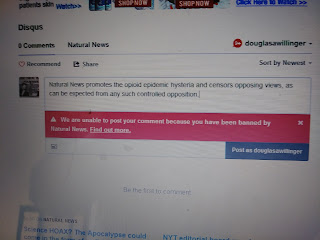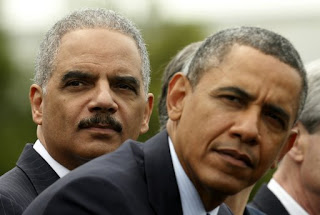Dana Beal - Legal Necessity
The sheer injustice of banning safer substances for the sake of protecting more dangerous ones demands these prohibitions be nullified. A legislative failure to respect basic liberties is no requirment upon the judiciary to follow suit, as our oath is not to the legislature but to the U.S. Constitution.
- some future judge
This was the basic defense offerered by Dana Beal's legal counsel, which was rejected by Judge Mary C. Gilbrite
http://legal-dictionary.thefreedictionary.com/Necessity+defense
A defense asserted by a criminal or civil defendant that he or she had no choice but to break the law.
The necessity defense has long been recognized as Common Law and has also been made part of most states' statutory law. Although no federal statute acknowledges the defense, the Supreme Court has recognized it as part of the common law. The rationale behind the necessity defense is that sometimes, in a particular situation, a technical breach of the law is more advantageous to society than the consequence of strict adherence to the law. The defense is often used successfully in cases that involve a Trespass on property to save a person's life or property. It also has been used, with varying degrees of success, in cases involving more complex questions.
Almost all common-law and statutory definitions of the necessity defense include the following elements: (1) the defendant acted to avoid a significant risk of harm; (2) no adequate lawful means could have been used to escape the harm; and (3) the harm avoided was greater than that caused by breaking the law. Some jurisdictions require in addition that the harm must have been imminent and that the action taken must have been reasonably expected to avoid the imminent danger. All these elements mirror the principles on which the defense of necessity was founded: first, that the highest social value is not always achieved by blind adherence to the law; second, that it is unjust to punish those who technically violate the letter of the law when they are acting to promote or achieve a higher social value than would be served by strict adherence to the law; and third, that it is in society's best interest to promote the greatest good and to encourage people to seek to achieve the greatest good, even if doing so necessitates a technical breach of the law.
The defense of necessity is considered a justification defense, as compared with an excuse defense such as duress. An action that is harmful but praiseworthy is justified, whereas an action that is harmful but ought to be forgiven may be excused. Rather than focusing on the actor's state of mind, as would be done with an excuse defense, the court with a necessity defense focuses on the value of the act. No court has ever accepted a defense of necessity to justify killing a person to protect property.
Most states that have codified the necessity defense make it available only if the defendant's value choice has not been specifically contradicted by the state legislature. For example, in 1993 the Massachusetts Supreme Judicial Court rejected the necessity defense of two people who were prosecuted for operating a needle-exchange program that was intended to reduce the transmission of AIDS through the sharing of contaminated hypodermic needles (Massachusetts v. Leno, 415 Mass. 835, 616 N.E.2d 453). Their actions violated a state law prohibiting the distribution of hypodermic needles without a physician's prescription. In rejecting the defense, the court held that the situation posed no clear and imminent danger. The court reasoned that citizens who disagree with the legislature's policy are not without remedy, as they can seek to have the law changed through popular initiative.
The necessity defense has been used with sporadic and very limited success in the area of civil disobedience since the 1970s. The most common circumstances involve public protests against Abortion, Nuclear Power, and Nuclear Weapons. Virtually all abortion protesters who have tried to avail themselves of the defense have lost. The courts have reasoned that because the right to an abortion is constitutionally protected, it cannot simultaneously be a legally recognized harm justifying illegal action. In these cases the courts have also denied the defense on the basis that the criminal act of protest would not stop abortions from occurring; that the harm caused by the act was greater than the harm of abortion; and that legal means of protest, such as demonstrating outside of the clinic rather than entering the clinic or trespassing on its property, were available. Consequently, according to the courts, there was no necessity for the protesters to break the law. In the vast majority of cases in which protesters, trespassing on property, blocked the entrance to nuclear plants, the courts have denied the necessity defense on the grounds that there was no imminent danger and that the trespassing protesters could not reasonably have believed that their actions would halt the manufacture of nuclear materials (see, e.g., State v. Marley, 54 Haw. 450, 509 P.2d 1095 [Haw. 1973]). The defense has also been denied in civil disobedience cases involving protests against U.S. policy abroad, the homeless problem, lack of funding for AIDS research, harmful logging practices, prison conditions, and human and Animal Rights violations.
Necessity has been used successfully by inmates who escape from prison under certain circumstances. In Spakes v. State, 913 S.W.2d 597 (Tex. Crim. App. 1996), the highest criminal court in Texas allowed the jury to be instructed on the necessity defense before deliberating the verdict for an inmate whose three cellmates had planned an escape and threatened to slit his throat if he did not accompany them. The defendant inmate argued that because of the terribly violent crimes of which his cellmates had been convicted (one had bragged about chopping his girlfriend up with an ax), he accompanied them and escaped. Even though he made no attempt to return himself to custody when he was separated from his cellmates, the court still allowed the defense. In contrast, most jurisdictions have held that an escapee must make an attempt to surrender or report to authorities as a condition for asserting the necessity defense. These courts have reasoned that once the immediate threat is no longer present, the action of escape is no longer necessary, and consequently it should end.
----
The judge needs to look at the basic statistics concerning the substance Dana is charged with possessing with intent to distribute.:
Marijuana is what U.S. Drug Enforcement Agency Administrative Law Judge Francis L. Young declared in September 1988:
“In strict medical terms marijuana is far safer than many foods we commonly consume. For example, eating 10 raw potatoes can result in a toxic response. By comparison, it is physically impossible to eat enough marijuana to induce death. Marijuana in its natural form is one of the safest therapeutically active substances known to man. By any measure of rational analysis marijuana can be safely used within the supervised routine of medical care.The drug laws being based not upon science, are a denial of due proces and equal protection under the law.
[DEA Administrative Law Judge - 1988]” ― Francis L. Young -- In the matter of MARIJUANA RESCHEDULING PETITION, Docket No. 86-22; OPINION AND RECOMMENDED RULING, FINDINGS OF FACT, CONCLUSIONS OF LAW AND DECISION





Comments
Post a Comment